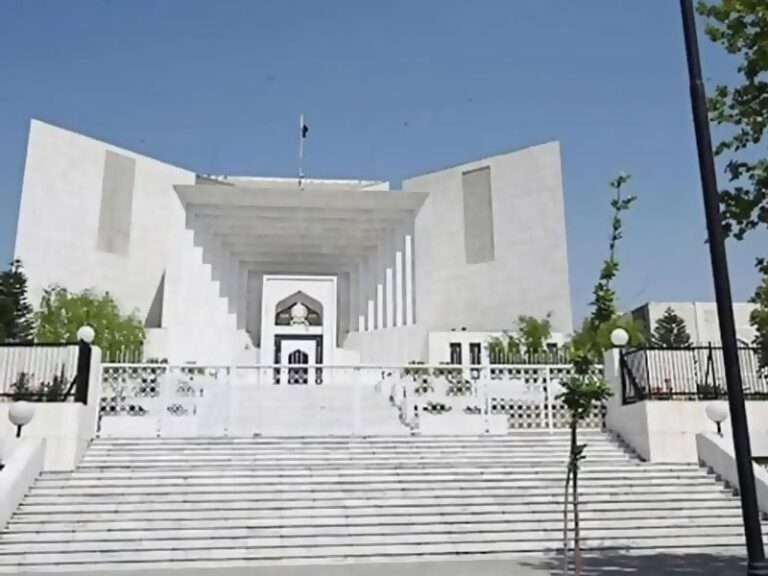ISLAMABAD:
The Supreme Court has ruled that proportionality must be applied with discipline, care and sensitivity to context, especially in cases involving fundamental rights and human dignity.
In a service matter involving a sub-inspector, the apex court stressed that the principle of proportionality offers a structured framework for judicial review of administrative actions.
The four-page judgment, authored by Justice Syed Mansoor Ali Shah, explained that the principle of proportionality provides a structured framework for judicial review of administrative actions.
“Developed across various constitutional jurisdictions, it involves a four-step test: (i) the measure must pursue a legitimate aim; (ii) be suitable to achieve that aim; (iii) be necessary, in that no less restrictive alternative exists; and (iv) strike a fair balance between the measure’s impact on individual rights and the public interest.”
This court has recently introduced and adopted this four-stage test to assess the legality and fairness of administrative and disciplinary decisions. Such a framework ensures that any interference with rights is justified, necessary, and lawful,” reads the four-page order.
The judgment was passed in a service matter where the Punjab Service Tribunal had partially allowed the appeal of a sub-inspector and modified the penalty from a two-stage to a one-stage reduction in pay through an order dated February 2, 2016.
According to the tribunal, while an investigation had been conducted, the prosecution “failed to produce even a shred of evidence” to substantiate the allegations. A division bench of the apex court, led by Justice Shah, heard the sub-inspector’s appeal against the tribunal’s ruling.
The order noted that despite these clear findings, the tribunal opted only to reduce the penalty rather than exonerate the petitioner.
“It appears that the Tribunal relied, albeit implicitly, on the principle of proportionality, finding the original penalty disproportionate to the alleged misconduct. However, this application was both legally flawed and logically inconsistent with its own conclusion when no misconduct was established. The Tribunal failed to properly exercise its discretion under Section 5 of the Punjab Service Tribunals Act, 1974, which empowers it to confirm, set aside, vary, or modify impugned orders. While the Tribunal has authority to vary the punishment in appropriate cases, such discretion must be exercised judiciously grounded in the record, legal standards, and principles of fairness,” the order stated.
The court noted that judicial interference in disciplinary penalties is only warranted when the punishment is “arbitrary, perverse, or based on irrelevant considerations”. “Once the Tribunal found that the allegations were wholly unsubstantiated, the only lawful outcome was to exonerate the petitioner.”
The judgment further elaborated that proportionality fosters a stable and systematic method for constitutional adjudication.

